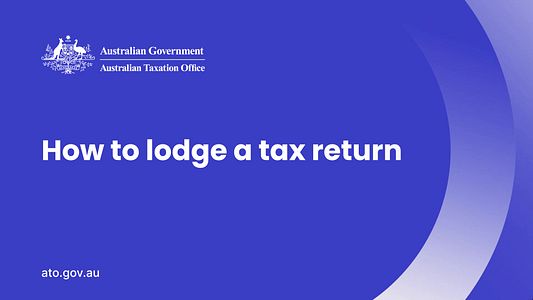Get Your Tax Return Filed Faster with These Online Services in Australia
Get Your Tax Return Filed Faster with These Online Services in Australia
Blog Article
The Uses of a Tax Return: Unlocking Prospective Cost Savings and Guaranteeing a Larger Tax Reimbursement
The income tax return acts as a vital tool for people seeking to optimize their economic end results, providing countless avenues for possible financial savings and improved reimbursements. By leveraging deductions and credit reports, taxpayers can tactically lower their gross income and boost their overall economic standing. The intricacies of tax obligation laws and the ever-evolving landscape of tax obligation legislation require a thorough understanding of offered choices. What are the essential techniques that can be utilized to assure that taxpayers maximize these benefits? The response may reveal greater than simply financial gains.
Recognizing Tax Obligation Reductions
Several taxpayers might discover themselves overwhelmed by the complexities of tax deductions, yet understanding these important elements is essential for making the most of potential cost savings. Tax deductions decrease gross income, consequently decreasing the overall tax obligation responsibility for individuals and businesses. Familiarizing oneself with the numerous types of deductions offered can substantially improve one's capability to maximize income tax return.
Reductions can be categorized into itemized and standard reductions. The common deduction offers a fixed decrease in taxable revenue, while itemized reductions allow taxpayers to identify certain expenses, such as home loan rate of interest, state taxes, and charitable contributions. Taxpayers should analyze which choice generates the best benefit, as selecting the proper reduction approach can result in significant financial savings.
Additionally, it is very important to maintain accurate records of insurance deductible costs throughout the tax obligation year. This method not only facilitates the prep work of income tax return however additionally assures compliance with internal revenue service needs. Taxpayers ought to additionally remain educated regarding changes in tax legislations that might influence eligible deductions, as these can vary each year. By effectively passing through the landscape of tax reductions, individuals can reveal the possibility for a more favorable tax end result and safe and secure greater monetary advantages.
Checking Out Tax Obligation Credits
Tax obligation credit ratings stand for an additional noteworthy avenue for taxpayers to decrease their overall tax obligation, complementing the advantages gained from deductions. Unlike deductions, which lower taxed earnings, tax obligation debts supply a dollar-for-dollar reduction of the real tax owed. This difference makes tax credits especially important for people looking for to optimize their savings.
There are two primary kinds of tax obligation credits: nonrefundable and refundable. Nonrefundable credit scores can decrease your tax obligation to no but not listed below that quantity, while refundable debts can cause a refund if the credit histories surpass the tax obligation owed. Examples of typically declared tax obligation credits include the Earned Income Tax Credit (EITC), the Kid Tax Credit score, and education-related credit histories like the American Opportunity Credit Report.
Eligibility requirements for these credit histories can differ significantly, commonly based upon revenue, filing status, and certain circumstances. Taxpayers ought to thoroughly evaluate the standards related to each debt to ascertain they claim all advantages for which they qualify. By purposefully making use of offered tax credit reports, individuals can boost their tax returns, eventually resulting in considerable savings and possibly larger refunds.

Spending Your Refund Intelligently
Getting a Tax reimbursement can seem like an economic windfall, but just how that money is made use of can exceptionally affect lasting monetary health and wellness. Instead of viewing your refund as non reusable revenue, consider it an opportunity to buy your future.

One efficient choice is adding to a Specific Retired Life Account (INDIVIDUAL RETIREMENT ACCOUNT) This can enhance your retired life cost savings while possibly yielding tax benefits. Investing in a varied supply portfolio can offer significant development capacity over time, allowing your reimbursement to function for you in the market.
In addition, take into consideration utilizing your refund to pay for high-interest financial debt, such as bank card balances. Minimizing financial debt can improve your financial standing and eliminate stress and anxiety, ultimately permitting you to allocate even more funds toward investments in the future.
For those concentrated on education, utilizing a knockout post your reimbursement for a 529 university financial savings plan can help secure a brighter future on your own or your youngsters.
Planning for Future Expenditures
Very carefully preparing for future expenses is essential for preserving financial security and attaining long-lasting objectives. A well-structured financial strategy permits people to assign sources properly, guaranteeing that upcoming prices do not disrupt their economic health. Income tax return can give an important structure for this planning process.
Using the refund as a springboard, individuals can identify and focus on substantial future costs, such as home fixings, education and learning prices, or health care needs. Establishing a budget plan that integrates these anticipated expenses makes it possible for a positive strategy, lessening the chance of financial stress when the moment pertains to resolve them.
Moreover, reserving funds from your tax obligation refund into dedicated interest-bearing accounts can improve the performance of your planning. Australian Tax return online. Consider producing a reserve particularly for unanticipated expenditures, ensuring that you are planned for unexpected circumstances without thwarting your financial objectives
Typical Mistakes to Prevent
Lots of individuals make crucial errors when handling their income tax return that can threaten their monetary preparation efforts. One common mistake is stopping working to maintain precise records. Insufficient documents can result in missed reductions, leading to a lower refund or greater tax obligation obligation. It is necessary to keep arranged records of all earnings, expenditures, and tax-related files throughout the year.
One more regular blunder is overlooking to review tax obligation legislation changes. Tax obligation laws can advance yearly, and ignorance of these modifications may result in missed chances for tax credit histories or deductions. Furthermore, several taxpayers neglect eligible deductions, such as those for instructional costs or clinical expenditures.

Filing taxes as well late or as well very early can also be damaging. Early filers might lose out on final tax obligation breaks, while late filers run the risk of fines and passion.
Moreover, not seeking expert aid when required can cause expensive errors. Tax experts can provide beneficial understandings, read making certain compliance and taking full advantage of prospective financial savings.
Finally, hurrying with the return can result in simple math blunders or forgot kinds. Making the effort to confirm all entries is essential for a successful income tax return outcome.
Verdict
To sum up, the tactical utilization of tax returns serves as a crucial system for optimizing financial advantages. Recognition of common pitfalls can also enhance the tax obligation process, ultimately encouraging taxpayers to utilize their returns for an extra protected financial future.
Tax obligation credit scores represent one more significant opportunity for taxpayers to lower their general tax liability, enhancing the advantages got from reductions. Unlike reductions, which lower taxable revenue, tax obligation credit ratings provide a dollar-for-dollar reduction plus up payments of the actual tax owed. Nonrefundable credits can decrease your tax obligation obligation to no yet not listed below that quantity, while refundable credit reports can result in a reimbursement if the credit reports exceed the tax owed. Instances of typically claimed tax credit scores include the Earned Earnings Tax Obligation Credit Rating (EITC), the Child Tax Obligation Credit report, and education-related credit ratings like the American Chance Credit History.
Tax policies can advance annually, and lack of knowledge of these modifications may result in missed possibilities for tax obligation credit scores or reductions. - Australian Tax return online
Report this page